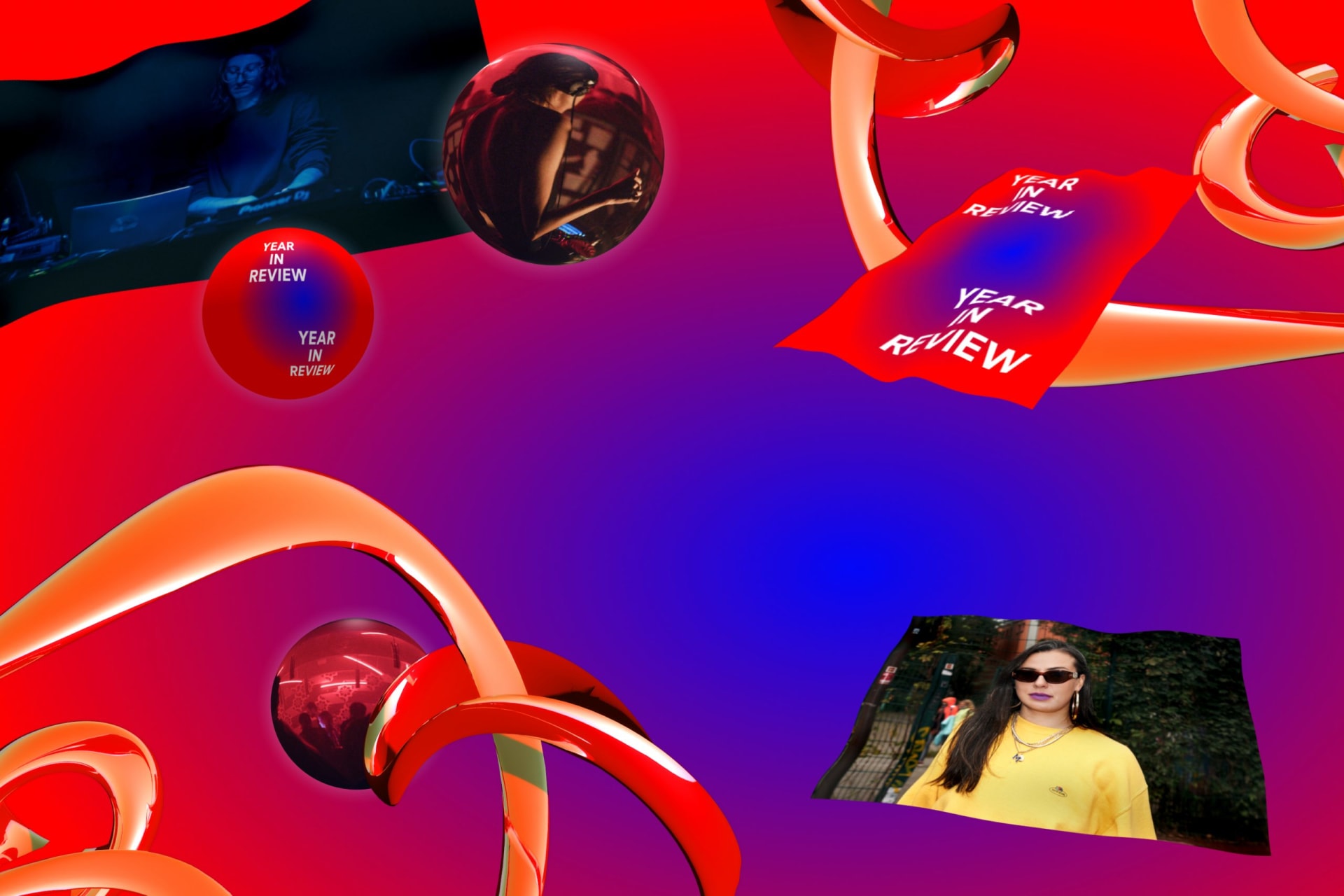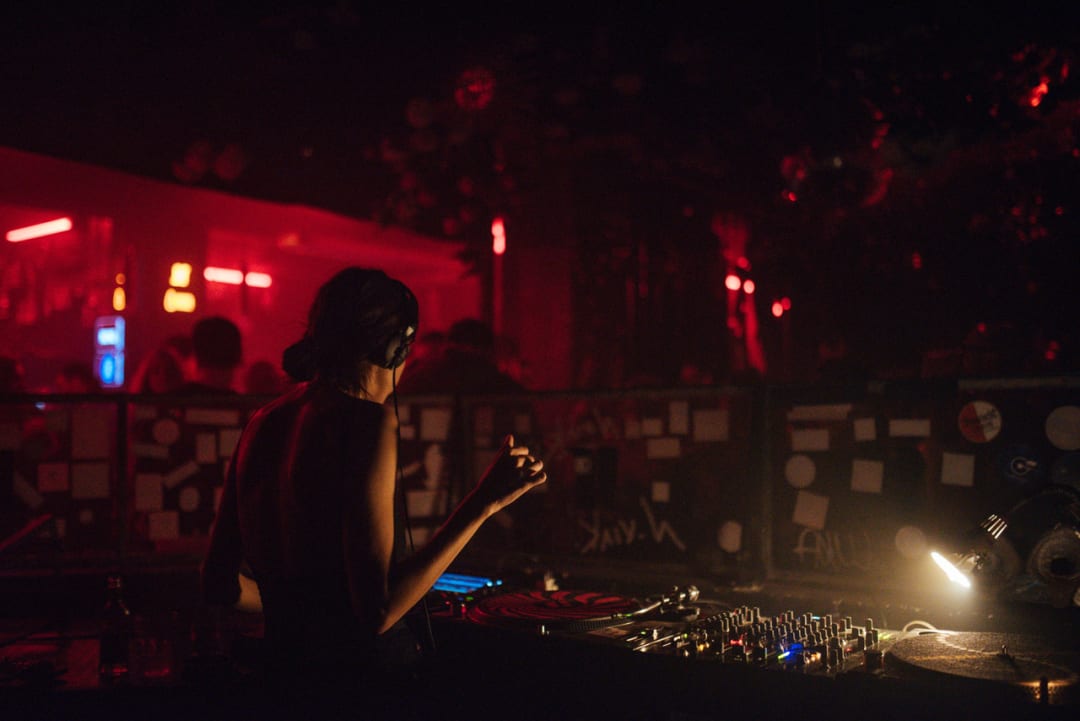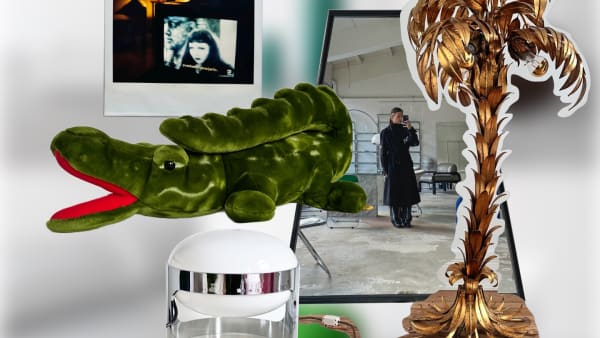

Year in Review: Breaking down electronic music’s iron curtain
In an increasingly anglophone media landscape, what will it take for Polish artists to be heard?
This year, Unsound’s final club night took place in an amusement park just outside of Krakow’s city centre. Hype Park – the festival’s new venue since the closing of its infamous Hotel Forum location – is a warehouse-like building, with its two dance floors placed at opposite ends between abandoned train tracks. In this space, festival-goers found themselves huddled together in their puffer coats, breathing out cold air like smoke as they took breaks between sets.
Around 4:45 am, it seemed the energy from four days of festival programming had evaporated when Monster took the main stage, drawing weary dancers right back into a sweltering groove with a hedonistic blend of fast techno, anthemic rave classics, and high-voltage acid. On November 12th, Crack Magazine published a photo gallery from the festival, featuring artists like Juliana Huxtable, LSDXOXO, and Dis Fig. Notably, none of the dozen Polish artists who performed at the festival were included in the original post.
Despite delivering one of the festival’s stand-out sets, Monster, a resident DJ at Projekt Lab in Poznań and a regular face at Unsound, having played at the festival’s last closing party in 2019, was only included in an edit of the post after the DJ collective Oramics pointed this out on Twitter.
“It was really annoying to see,” says Kraków-based curator, label owner and agent Łukasz Warna-Wiesławski of the publication’s omission. His label Tańce has released records by Polish talents like Avtomat, Semprey and Naphta, who all performed at Unsound this year. “It’s not a surprising or new situation, but this year it felt extra insulting, because there were a lot of Polish artists on the bill.” Highlight performances from local artists included live sets by Charlie, Avtomat, and Lutto Lento, who collaborated with a drummer to bring his most recent album LEGENDO to the stage. Meanwhile, scene veteran and We are Radar co-founder Olivia and her Detroit-inspired vinyl back-to-back with Dtekk kept dancers on their toes into the early morning.
Warna-Wiesławski recalls how six years ago, when the festival took place under its “Surprise” theme, audiences confused Polish trio T’ien Lai with the Swedish duo SHXCXCHCXSH, “because the name wasn’t announced in advance, and they were masked. For some people those acts will be invisible filler forever.”
This element will show content from various video platforms.
If you load this Content, you accept cookies from external Media.
For Monster, visibility is an ongoing issue for DJs across Poland. A member of the Oramics crew, founded in 2017, Oramics was initially established to advocate for female talent in the Polish electronic music scene, but it later evolved to promoting LGBTQ+ and non-binary artists and broadened its focus on highlighting talents from the Eastern European scene at large.
Last year, Oramics published a report on the artists’ nationalities represented in Resident Advisor, Fact Magazine, and Crack Magazine’s influential podcast series. The report highlighted how the vast majority of mixes came from artists from the UK, the US, or Western Europe. “Eastern European, Asian, African, South American artists are very poorly represented in all of these mix series,” says Monster. “All of those regions have one thing in common: in order to be financially secure, their citizens often have to migrate to the richest countries in the world to be able to save up more than it would ever be possible in their home countries. That’s the reality of many countries that were affected by the so-called shock therapy. As part of Eastern Europe, Poland is a country of cheap labour for the wealthier parts of the European Union.”
Poland, as part of Eastern Europe is a country of cheap labour force for the more wealthy part of European Union.


The financial frustration and the constant fear of missing out, Warna-Wiesławski says, has only increased through the rise of social media, a decline in long-form music journalism, and the algorithmic incentive to increase engagement through featuring those who already have a platform.
“It is a vicious circle that causes us to be constantly bombarded with the same content, faces and music,” Żaczek adds.
“Sometimes it is hard to promote the party if our guest is not popular in social media,” admits Olivia, who runs her seminal We Are Radar nights alongside her partner Chino and Kinzo Chrome. Her EBM-inspired acid squelching EP Dancing Snake was released to Rotterdam’s Pinkman imprint last year and she is a frequent performer at Unsound, having connected with the festival’s founders early on. Olivia says Unsound has made a colossal contribution to the Polish music scene and stands out in its efforts to educate audiences on new music. “For me as a DJ, it’s like a music school where I can dig and get to know a lot of amazing sounds.”
Olivia is also a resident at Jasna 1 in Warsaw, a club that over the course of four years has proudly built up a reputation for its forward-thinking curation and strong roster of residents, among them VTSS. As Jasna 1’s artist director Jędrzej Kowalczyk asserts, the club’s residents play an active role in the lineups and art direction of each night. “They all developed a lot during the past four years and are proud to represent our club around the world.”
He lists emerging Warsaw-based artist Phatrax and Adam Brocki, who goes by Newborn Jr. or Blu Terra and is one half of the Private Press collective as ones to watch. “He’s already released a lot of great and super diverse music under a few aliases on respected and well-established labels such as Phonica, Rhythm Section and aex records and definitely deserves a lot more recognition internationally in my opinion.” Kowalczyk says Jasna 1 is “finally getting to a point, where we truly have our own music identity, and this is starting to be recognized in Europe.”
We’re finally getting to a point, where we truly have our own music identity, and this is starting to be recognized in Europe.
This element will show content from various video platforms.
If you load this Content, you accept cookies from external Media.

Caroline Whiteley is an editor at Electronic Beats. For this feature, we received countless submissions of artists and releases from Poland to check out. Find a curated selection by local artists below:
Justyna Banaszczyk:
Recently I’ve been listening to Martynka Basta and her debut album for Warm Winters, Akwizgram’s Castle 2 released by Enjoy Life and Spalarnia released by the Dym label. It’s also worth paying attention to Zaumne, Teoniki Rożynek, Edka Jarząb, Mentos Gulgendo or Warsaw’s Syntetyk label. On Pointless Geometry, we are set to release the debut of Joanna Szczęsnowicz aka jablkagruszki. It’s been a long time since I heard something that good, but you’ll have to wait until early spring to hear it.
Pawel Paide Dunajko, founder of juke, footwork, and 160 label Outlines:
Fischerle is a music project of Mateusz Wysocki, a specialist in dub experiments. In fact, each new release of Wysocki surprises with a new approach to sound and the intellectual apparatus hiding behind it. I especially recommend last year’s release of Patalax label, in which Mateusz for recording this album used Aztec instruments from the city Teotihuacan, which were made available to him by a German archeomusicologist, Adje Botha. Currently Mateusz tries his skills in producing hip-hop beats in a producer duo called ifs (which he co-creates with a producer Ostrowski).
Ostrowski in my opinion is one of the most interesting and original producers/sound artists.His music is a continuation of clicks & cuts tradition originating from such labels as mille plateaux or scape, but often played by Ostrowski at 160BPM. His latest album “WoKa. Vol. 1“, which was released by Brutality Garden, is an extraordinary experimentation with genres such as gqom and afro house.
Maciej Maciągowski and his album “TURB0_0BRUT” was released a day before Rian Treanor’s “File Under UK Metaplasm”. In contrast to Treanor’s album (excellent by the way), Maciągowski’s music did not appear in the foreign media to the same extent as his more famous colleague. However, it is enough to compare both albums to easily come to the conclusion that “TURB0_0BRUT” is as striking and subversive as “File Under UK Metaplasm”.
Kevin Murf and his EP “All Inclusive”, released on a French label Grid, is a mix of crackles and hybrid sound in which various musical traditions intermingle together.
Zaumne is a specialist in creating highly sensual ambient compositions. His “Élévation” EP released on Mondoj label is a prime example of this unique sensibility.
Published December 14, 2021. Words by Caroline Whiteley, photos by Joanna Chwiłkowska & Maciej-Zygmunt.












Follow @electronicbeats